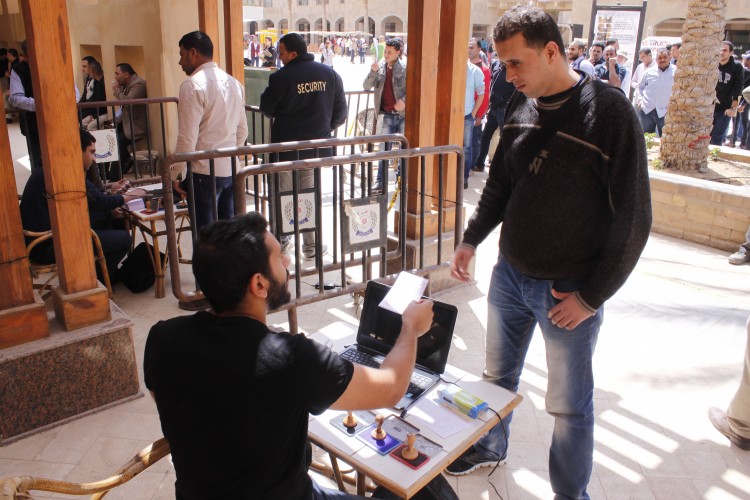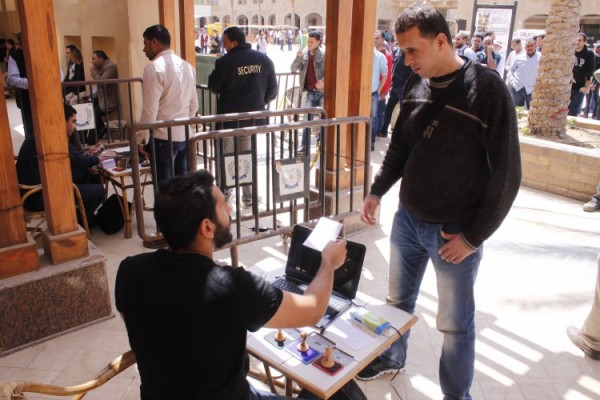BY MIREL SOLIMAN, NOHA TAWIL and MENNA ABBAS
@CARAVAN_AUC

Egypt’s first round of parliamentary elections ended on October 28 with a turnout of 26.6 percent.
The second round is scheduled for later in November.
The primary round saw a marked decline in youth participation – an absence that Saad Eddin Ibrahim, head of the board of trustees at Ibn Khaldun Center for Development Studies, described as “worrying”.
“The youth feel that the revolution has been hijacked from them once by the Muslim Brotherhood, and then by the military,” Ibrahim said.
Ahead of the primary round of elections The Caravan conducted a survey of 200 AUC students, asking three questions: Are they aware of the parliamentary elections; are they going to vote; and why or why not?
About 27 percent of the students surveyed said they were unaware of the elections.
Only 36 percent of respondents said they plan to vote and approximately 35 percent said they had some knowledge about the candidates.
Ahmed Gammal, petroleum engineering senior, said he was not going to vote.
“I don’t see any candidate who can represent the people of his area [and] the candidates who are in the elections are either old or have been there multiple times.”
The survey revealed that the apparent apathy among the student body stemmed from a number of reasons.
Some described a heightened disinterest in politics after the revolution, while others said they didn’t have faith in the government and electoral framework.
Local newspapers and television networks criticized the low voter turnout – 26 percent – during the first phase of elections, which began on October 17.
Turnout for the runoff last week isn’t expected to be much better.
“What’s happening nowadays is exactly what was happening during [ousted President Hosni] Mubarak’s era in that the candidates who are in the elections are the same exact ones as in the past,” John Anees, a senior engineering student, told The Caravan.
Anees believes certain elements in the country were attempting to limit electoral
choices to certain candidates. “I don’t think I’ll take a role in this play,” he said.
Other students feel that it is pointless to vote as everything will remain the same because the country lacks organized opposition parties.
“I’m sure that at the end the candidates and parties that the government wants are the ones who are going to win,” said Lojaine Abd El Raouf, a finance junior.
A number of the students who did not vote did, however, say would have liked to but were from different provinces and governorates and had no access to their electoral posts.
Seventy-two respondents said they expected to vote, although 64 per cent of them said they do not know whom they will vote for.
This year’s parliament will have 596 seats*; 448 seats are reserved for independent candidates, while 120 seats will be reserved for parties and coalitions.
There are over two thousand individuals contesting for the independent seats – the majority of whom were relatively unknown.
*The Egyptian president will appoint the remaining 28 seats.
